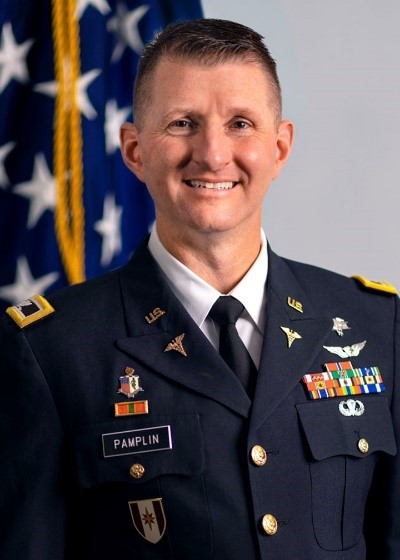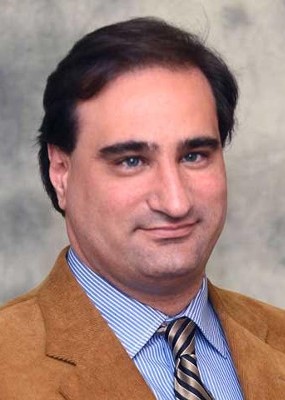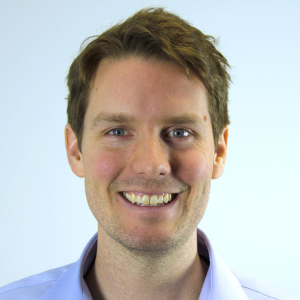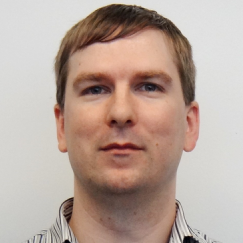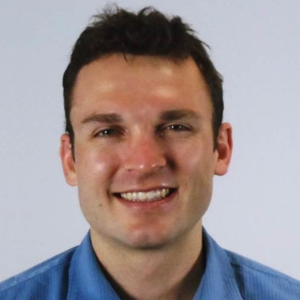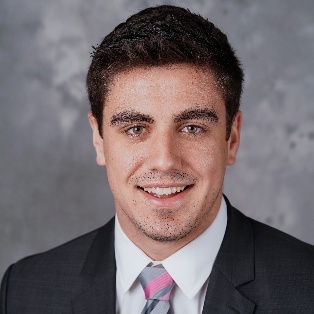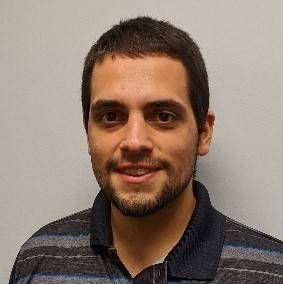BioGears Conference
March 17-18, 2020
Now available on YouTube and GitHub
Conference Overview
March 17-18, 2020
Now available on YouTube and GitHub
The BioGears conference will provide the community of medical modeling and simulation professionals a place to discuss advancing the current state-of-the-art in physiological modeling. Conference admission will be free to all who register.
This conference will initiate discussions on how to develop and extend BioGears physiology models for new users and use cases, and will expand the body of knowledge regarding the use of simulated physiology for medical education.
Presentation PDFsKeynote Speakers
COL Jeremy C. Pamplin, MD, FCCM, FACP
COL Jeremy Pamplin has been the Director for the Telemedicine and Advanced Technology Research Center since June 2019, a position he assumed following his role as Deputy Director starting in August 2018. Prior to this assignment, he was the Director of Virtual Critical Care at Madigan Army Medical Center. During that assignment, he began the first Army Tele Critical Care service and integrated it with the Navy’s Tele Critical Care service to form the Joint Tele Critical Care Network. Prior to that assignment, he was the Chief of Clinical Trials in Burns and Trauma and the Medical Director of the U.S. Army Burn Intensive Care Unit at the U.S. Army Institute of Surgical Research. He has served as medical director of surgical and medical ICUs since completing his Critical Care Medicine fellowship at Walter Reed Army Medical Center in 2007. COL Pamplin has deployed in support of Operation Iraqi a Freedom and Operation Enduring Freedom: once to Iraq as the Chief of Critical Care for the 86th Combat Support Hospital and once to Afghanistan as the Deputy Deployed Medical Director for the 33rd Field Hospital and the American Contingent’s physician leader. He is the Principle Investigator of multiple projects investigating the impact of telemedicine and health information technology in austere, operational environments. He remains the medical director for the ADvanced VIrtual Support for OpeRational forces (ADVISOR) program that he helped create in order to deliver a range of operational virtual health capabilities to deployed forces. He received a bachelor of science from West Point in 1997 and his medical degree from the Uniformed Services University in 2001.
Thomas Talbot
As a pediatrician, scientist and futurist, Talbot endeavors to create meaningful improvements that will advance the state of the art in medical education and patient care. Areas of interest include natural user interfaces, VR and augmented reality, virtual interactive humans and microcontrollers. He has been the CEO of Medical Mechanica LLC for almost three years while simultaneously serving as a principal medical expert and associate professor at the University of Southern California and a scientific consultant for his own company, Talbotics LLC. He is a veteran of the U.S. Army with wartime experience and was chief of academic computing for the U.S. Army Medical Research Institute of Chemical Defense. He published nine papers and won numerous awards for his work in the physiology modeling and virtual reality fields. Talbot has more than 15 years of experience as a medical simulation developer. He authored the popular SIMapse Nerve Agent Laboratory and Nerve Academy applications. His more current work is focused on creating a new generation of virtual patients, based on ICT virtual human technology, that are useful educational tools that real people can use and author. Through his efforts, Talbot has created one of the nation’s largest medical education focused research and development program.
Featured BioGears Speakers
Austin Baird
Dr. Austin Baird’s research focuses on mathematical modeling of biological systems, specifically fluid-structure interaction, mathematical models in physiology, and dynamical system applications. At ARA, Dr. Baird is the principal investigator of TATRC BioGears open-source human physiology engine, the ARL funded Virtual Patient project, and the CDMRP funded follow-on effort. Dr. Baird's doctoral work focused on fully coupled fluid-structure interactions in modeling the invertebrate valveless tubular heart and the integration of a cardiac muscle cell model. Dr. Baird spent a year at Duke University as a visiting professor studying re-absorptive mechanisms of the kidney in response to venous pressure changes using high fidelity whole kidney computational models. While at Duke, he also investigated blood cell aggregation and de-aggregation in the capillaries due to peristaltic pumping mechanisms. He has been published in peer-reviewed journals and presented his work at a number of conferences.
Stephen White
Steven is lead software developer on BioGears. He has 15 years of industry experience working on simulation and visualization projects. Dr. White received his Ph.D in Computer Science in 2013 from the University of Louisiana focusing on learning transfer and Virtualized Welding. He has been with ARA since 2015 working. Before joining BioGears Steven worked on the augmented reality situations awareness app (ARC4) as the lead developer and architect.
Matthew McDaniel
Matthew performs physiology modeling and software development tasks for BioGears. He has a B.S. in Chemical Engineering from Arizona State University (2013) and an M.S. in Biomathematics from North Carolina State University (2017). He is also a Teach for America alumnus (2013 corps). Matthew has been employed with ARA since 2017.
Nathan Tatum
Nathan is a physiology modeling and simulation engineer on the BioGears project. He obtained a B.S. in biomedical engineering from the University of Miami in 2016 and completed his M.S. in mechanical engineering from Duke University in 2018. With an interdisciplinary background in engineering, his passion lies in medical applications of modern technology and developments. As such, he hopes to advance BioGears' capabilities in a way that makes it more effective and easier to use in medical training applications.
Lucas Marin
Lucas Marin is a software developer on the BioGears project. In 2018 he graduated cum laude from Rutgers University's School of Arts and Sciences with a B.S. in computer science. During his time at Rutgers he was a member of the School of Arts and Sciences Honors Program, and was nominated to the Phi Beta Kappa society. His goals include continuing his education and honing his abilities as a developer.


